Two sound sources emitting sound each of wavelength are fixed at a given distance apart. A listener moves with a velocity along the line joining the two sources. The number of beats heard by him per second is
The correct Answer is:A
frequency heard by listener

beat frequency
Topper's Solved these Questions
- SOUND WAVESBook:RESONANCE ENGLISHChapter:SOUND WAVESExercise:Exercise- 2 PART - II
Explore 20 Videos
- SOUND WAVESBook:RESONANCE ENGLISHChapter:SOUND WAVESExercise:Exercise- 2 PART - III
Explore 19 Videos
- SOUND WAVESBook:RESONANCE ENGLISHChapter:SOUND WAVESExercise:Exercise- 1 PART - II
Explore 30 Videos
- SIMPLE HARMONIC MOTIONBook:RESONANCE ENGLISHChapter:SIMPLE HARMONIC MOTIONExercise:Exercise
Explore 28 Videos
- STRING WAVESBook:RESONANCE ENGLISHChapter:STRING WAVESExercise:Exercise
Explore 32 Videos
Similar Questions
A and B are two identical sound sources cachemitting a note of frequency 1000 Hz. A person moves from A to B along the line joining the two sources. How fast should be move to that he has 7 beats per second. velocity of sound 330 m/s ?
View SolutionTwo coherent sound sources A and B produce a sound of wavelength λ. If at t=0 a detector starts moving with constant velocity v0 from point O along y - direction, then the minimum time, after which it detects the sound of maximum intensity, is (D>>λ)
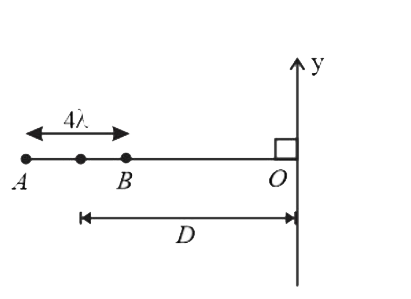
View Solutiontwo piano keys are stuck simultaneously. the notes emitted by them have a frequencies 250 Hz and 253 Hz. the number of Beats heard per second is
View SolutionTwo coherent light sources, each of wavelength λ, are separated by a distance 3λ, The maximum number of minima formed on line AB, which funs from −∞ to +∞, is
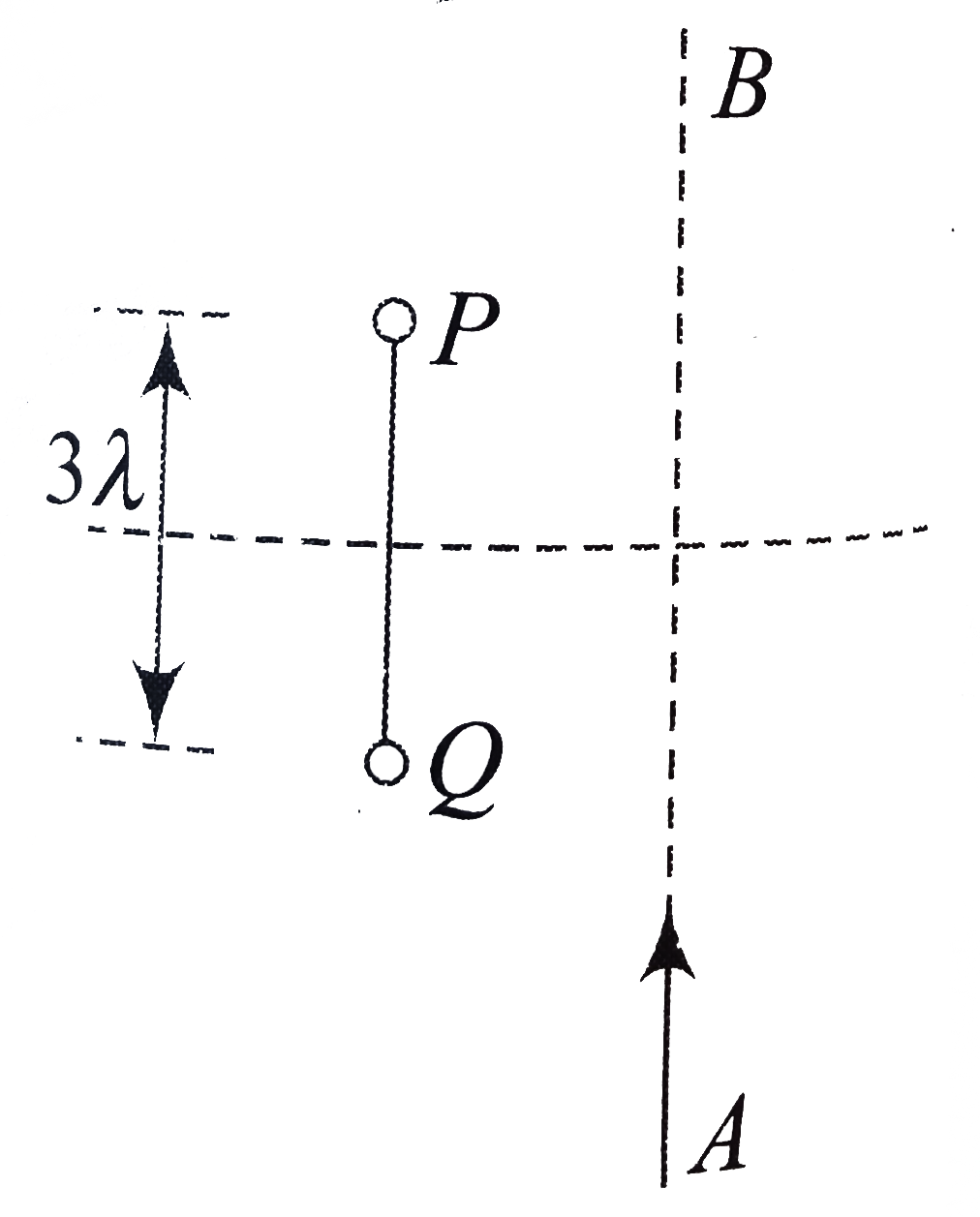
View SolutionTwo sound waves of wavelengths 98cm and 100cm arrive at the same point,from two different source.The number of beats heard (per second) is (speed of sound is 392m/s)
View SolutionTwo identical source moving parallel to each other at seperation 'd' are producing sounds of frequency 'f' and are moving with constant velocity v0. A stationary .observer 'O' is on the line of motion of one of the sources. Then the variation of beat frequency heard by O with time is best represented by: (as they come from large distance and go to a large distance)
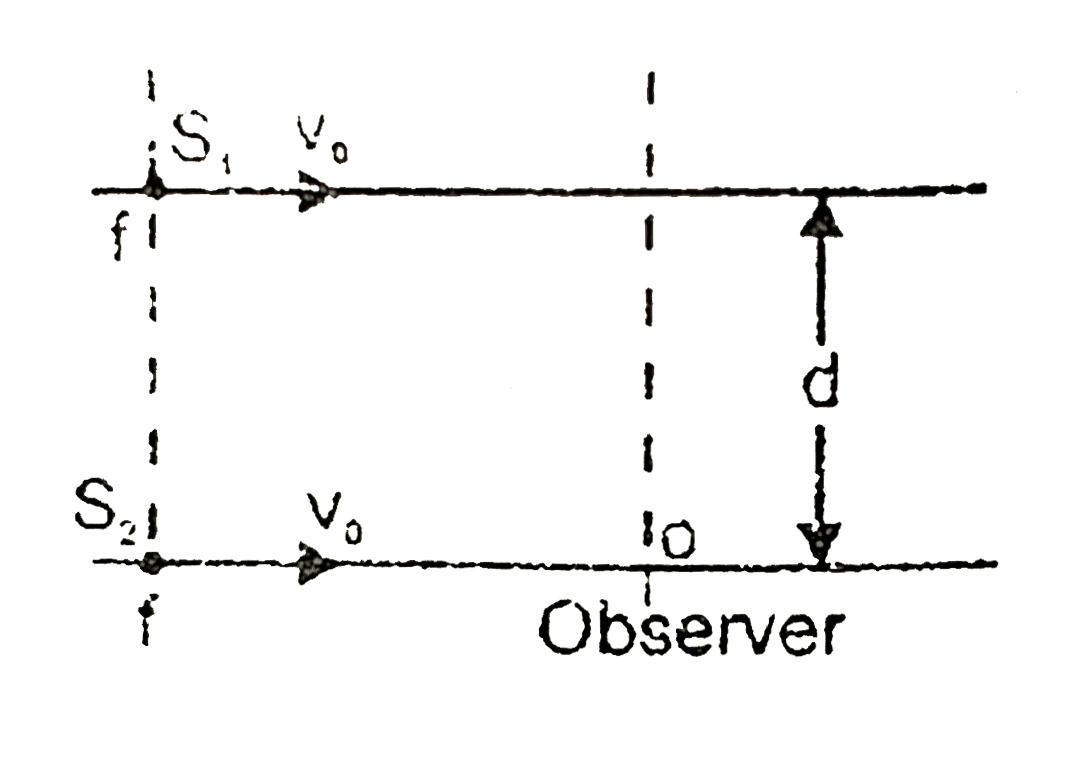
View SolutionA sound source emits two sinusoidal sound waves, both of wavelength λ, along paths A and B as shown in figure.The sound travelling along path B is reflected from five surfaces as shown and then merges at point Q, producing minimum intensity at that point.The minimum value of d in terms of λ is :
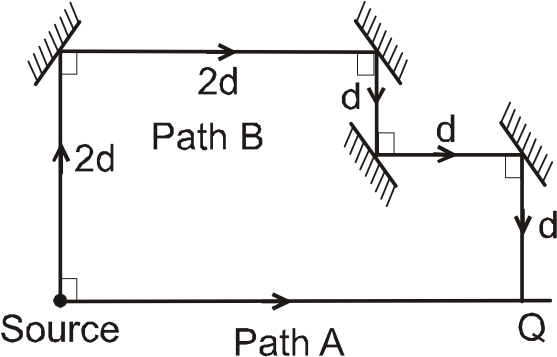
View SolutionTwo coherent sources separated by distance d are radiating in phase having wavelength λ. A detector moves in a big circle around the two sources in the plane of the two sources. The angular position of n=4 interference maxima is given as

View SolutionTwo stationary sources of sound, S1 and S2 having an equal frequency are fixed some distance apart. The position A is left of S1 , position B in the middle of the two sources and positionC is to the right of S2. An observer starts moving with velocity V0 from position A towards S1, then
View SolutionTwo coherent sources emit light of wavelength λ. Separation between them, d=4λ.
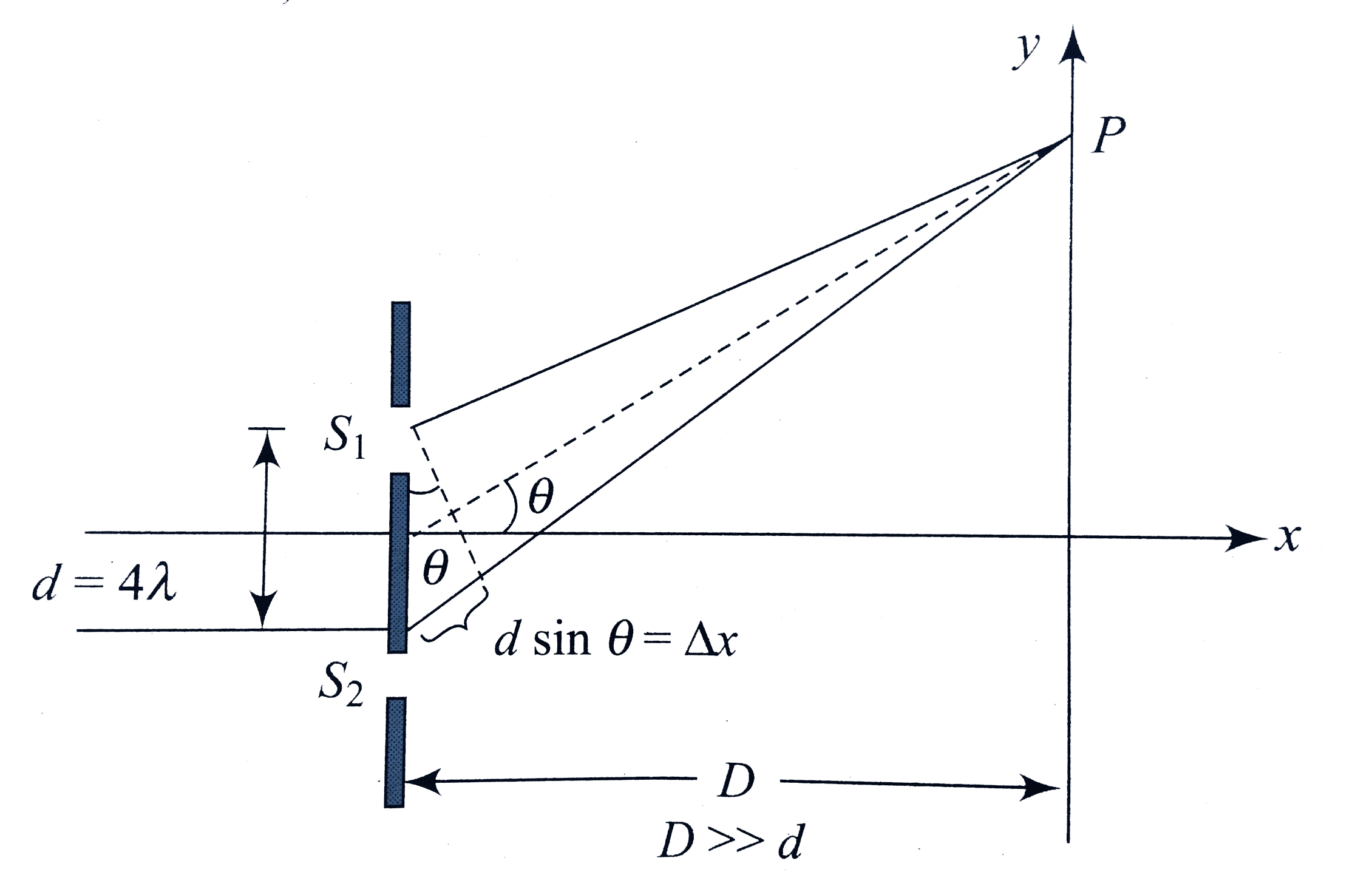
If a detector moves along the y-axis, what is the maximum number of minima observed?
View Solution

